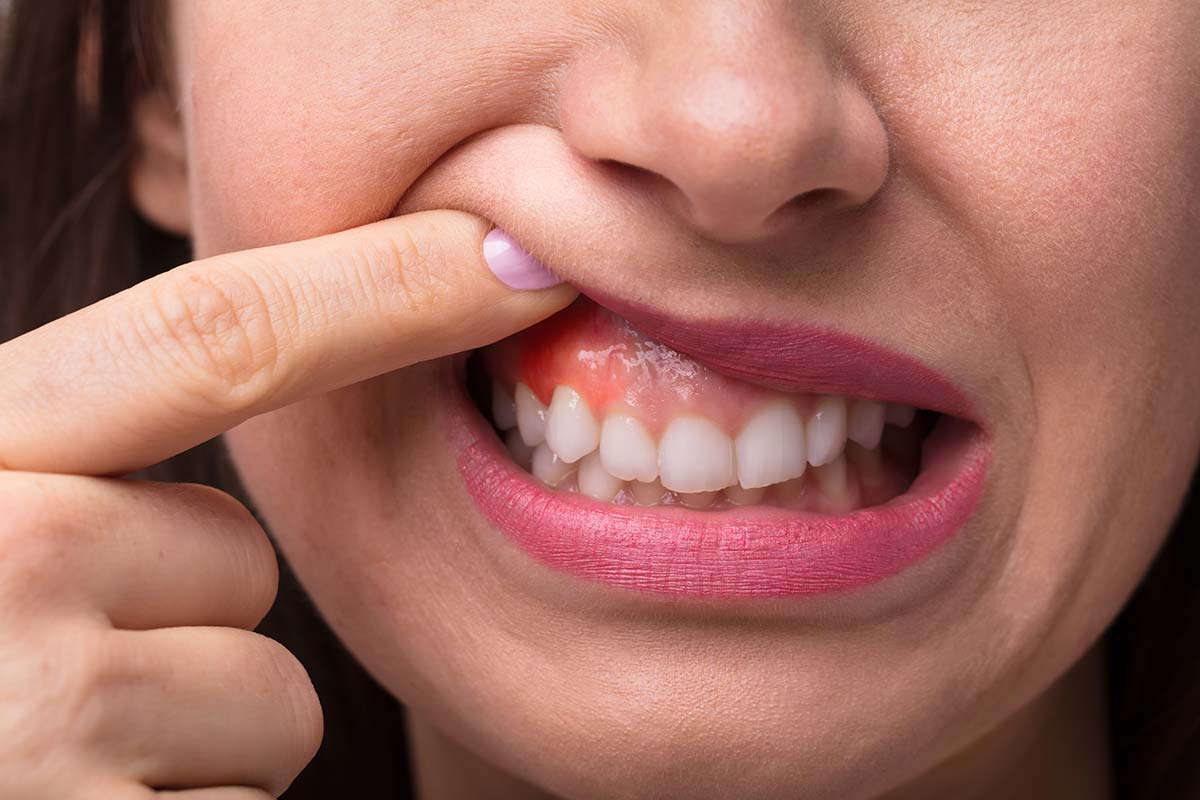Bleeding gums are not normal. If your gums bleed when you brush your teeth, it could be a sign of something seriously wrong with your oral care or general health. It may also indicate that you apply too much force when brushing your teeth. Learn more about the common causes of bleeding gums and how Lovett Dental Humble professionals can help you monitor the condition by reaching out to our friendly staff today.
Common Causes of Bleeding Gums
Bleeding gums may indicate that you have gingivitis, which is a form of gum disease. Here are some other common causes of bleeding gums:
- Brushing your teeth too hard
- Using a toothbrush that is too hard
- Newly formed flossing habit— it takes your gums a while to get used to this
- Blood thinners and similar medications
- Gingivitis associated with pregnancy
- Poorly fitting dentures
Make an appointment with a general dentistry professional or specialist from our office to learn more about these risk factors.
More About the Causes of Bleeding Gums?
Paying attention to your oral care can help you find the cause of your bleeding gums. If you wear dentures, talk to your orthodontist to find out why they do not fit well. We can take another impression and order you a better fitting denture plate.
Hormonal changes during pregnancy can cause the soft tissues of your body to exhibit more sensitivity than usual. Gum bleeding is common during pregnancy.
If you have hemophilia or leukemia, this increases the likelihood that you have bleeding gums. Also, blood-thinning medications can cause gums to bleed. Medications in these categories include aspirin, heparin, and warfarin.
What Are Your Risk Factors if Your Gums Bleed?
Bleeding gums carry numerous risk factors based on your specific health condition. For example, clients over 65 have more incidents of gum disease than 20-year-olds. And many adults over age 30 begin to develop gum disease that can cause gums to bleed.
Stress can cause numerous issues with your oral health. Periodontal disease may develop if your body becomes stressed and too weak to fight off inflammation, for example.
Ask your dentist from Lovett Dental Humble about what prescription medications run a higher risk of contributing to gum disease. If you take antidepressants, heart medications, or oral contraceptives, these may increase your risk of bleeding gums and other oral health issues.
If you have a family history of gum disease, chances are you are more likely to get it than someone who does not. Additionally, smokers have a much greater chance of developing bleeding gums than those who do not use tobacco products.
If you clench or grind your teeth, you will likely develop bleeding gums and other dental issues if you do not wear a mouthguard.
Healing Gum Disease
Annual checks and regular teeth cleanings can heal gum disease and help you reverse the damage done by poor hygiene or other causes. Schedule a consultation with one of our dentists today for a comprehensive evaluation.
Proper hygiene includes brushing after every meal and before you go to bed. We suggest using a fluoride toothpaste that has a gentle formula that won’t irritate your gums. Use floss to clean in between your teeth twice a day. Additionally, you can rinse with a mouth rinse especially formulated to soothe sore gums.
Gum Disease Consultation at Lovett Dental Humble
Make an appointment for a consultation with one of our general dentists. After your visit, the dentist may recommend that you see a periodontist who specializes in gum health. Contact Lovett Dental Humble at 281-441-9000 today for more information or schedule an appointment, and we can discuss all your oral care needs.







